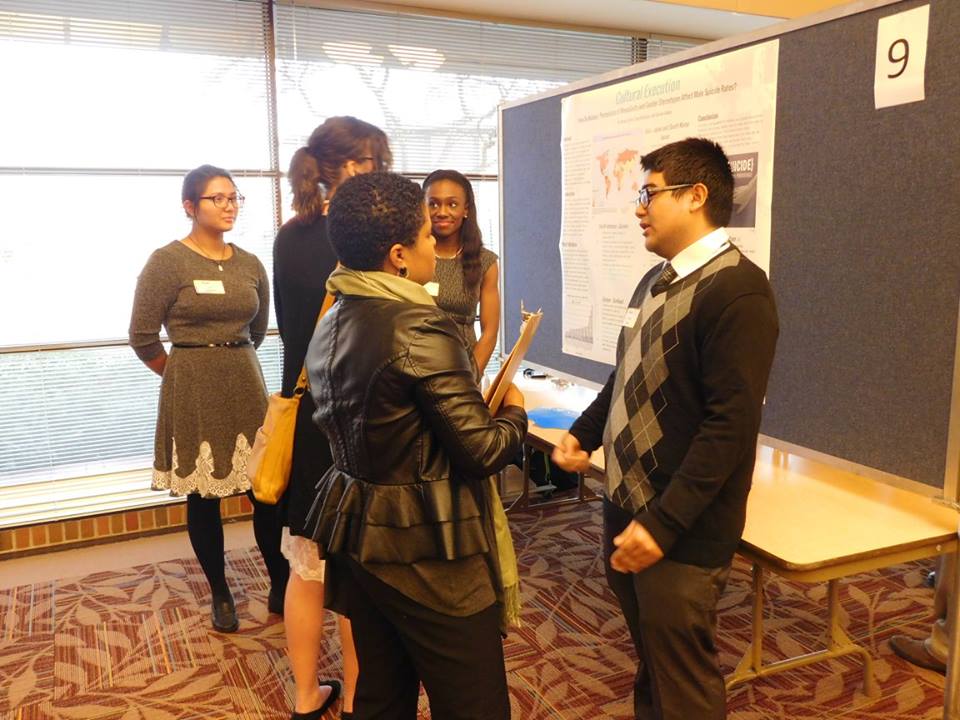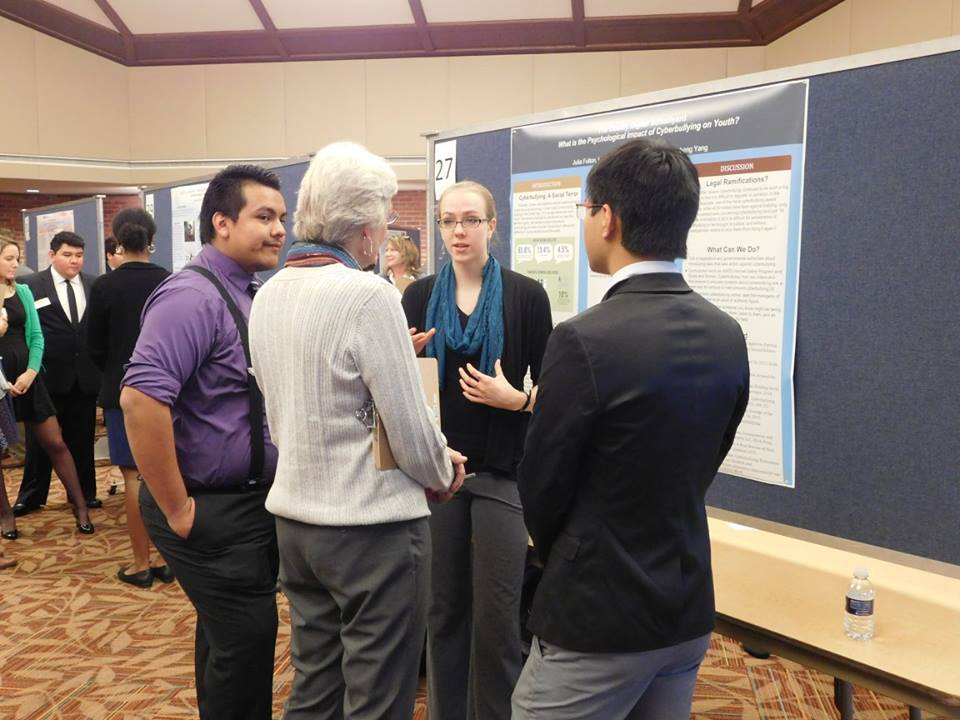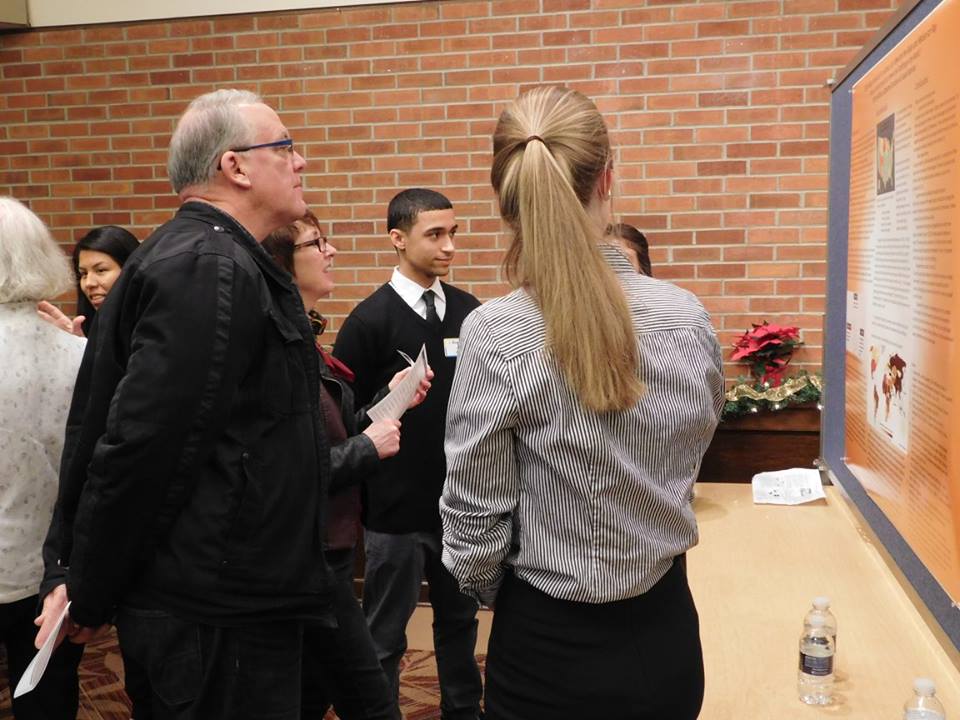
This is the last post I will be doing for the #JustPhelpsScholarsThings since last Friday (December 4) was the last event: the Phelps Scholars Research Presentations. It is essentially a symposium held in the Maas Auditorium in which students present the research posters they’ve been working on throughout the semester that highlights a current, global issue, their analysis of it, and a suggested plan of action against it.
According to Professor Vega, here are a few of the comments our advisors and professors were told over the course of the evening:
- “Being here was the best part of my day.”
- “Great posters!”
- “It was neat to see such a variety of topics.”
- “Passionate and informed students.”
- “Outstanding and so creative!”
- “I was super impressed with their communication style.”
For us, the students, it was tiring, exhilarating, and enlightening. These are just a few of the topics we researched:

“We focused on how nations’ gender stereotypes and expectations of masculinity cause men suicide rates to be significantly higher than female suicide rates. This is because in cultures where men are expected to take control of their families, businesses, and lives and where it is not socially acceptable to express sadness or depression, men often turn to suicide. We presented the statistics and studied how this is prevalent in certain countries such as Japan, South Korea, Scotland, South Africa, and Guyana.” – Frina Redoloza, Ryann Felton, and Surrey Valdez

“Our project was about the psychological impact of cyberbullying on youth (like middle school and high school) around the world. Cyberbullying can cause symptoms of anxiety, depression, and suicide. Rates of cyberbullying are directly related to rates of internet access, so as technology spreads, it is becoming a serious global problem.” – Julia Fulton, Leonel Hernandez and Jin Cheng Yang

“We researched how we can help to actively prevent sex trafficking, inspired from “Half The Sky.” Throughout the research, it became evident that the first step might not even be targeting trafficking itself, but gender discriminations and social norms that harm women. Unfortunately, there is so much more than needs to be done before the trafficking industry can really be struck with force.” – Catherine Dustrude, Isayah Ramirez, and Brittany Alarcon

